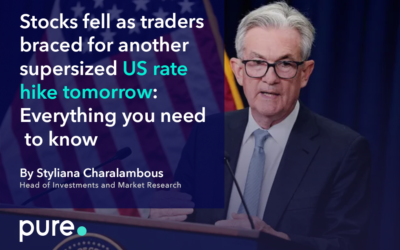Spread Betting. Contracts For Difference (CFDs). At first glance they appear almost identical. You can go long or short. You never own the underlying asset, so you don’t pay stamp duty and both involve a high degree of leverage, which can magnify your returns but can amplify losses, too. Now look closer, there are some important differences. First, deal sizes. With spread betting you bet an amount of money per point, say €10 on whether a market will go up or down. However with CFDs you buy and sell contracts that represent an amount per point in the underlying market.
Tax. Spread betting profits are currently free of capital gains tax but CFDs are liable. While this may seem a major drawback, any losses can be offset against future profits for tax purposes, which makes CFDs good for hedgin

Stocks fell as traders braced for another supersized US rate hike tomorrow: Everything you need to know
Twitter Sues Elon Musk for Trying to Terminate $44 Billion Deal
Twitter Sues Elon Musk for Trying to Terminate $44 Billion Deal
Twitter Sues Elon Musk for Trying to Terminate $44 Billion Deal
Goldman Sachs Offers Its First Bitcoin-Backed Loan
Goldman Sachs Offers Its First Bitcoin-Backed Loan




